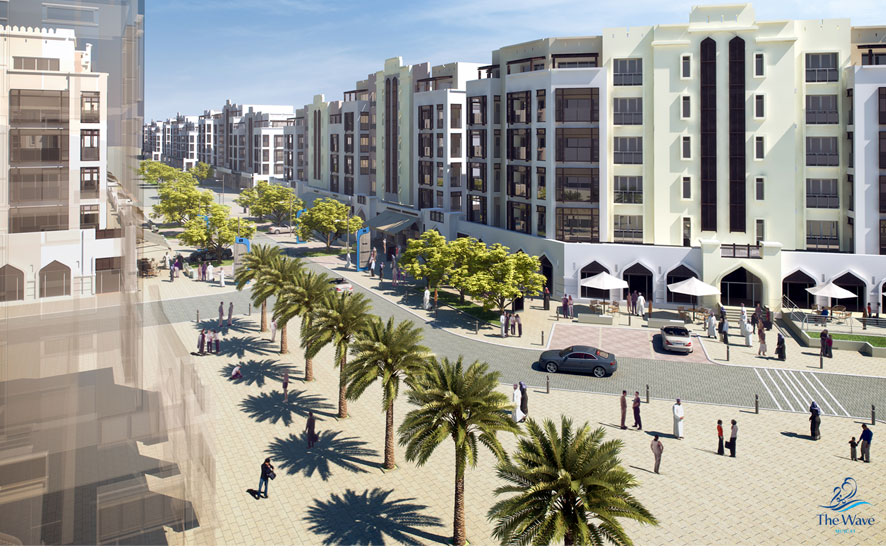+968 72444424
-
Service
- Real Estate Service
- Handyman Services
- Home Service
- Appliance Repair
Oman’s real estate market to stabilise in 2018, says Cluttons

Oman’s GDP growth is expected to rise to 5.2 percent next year, aided by the introduction of natural gas production at the Khazzan gas field and the opening of the new airport in Muscat, according to leading international real estate consultancy Cluttons.
Ian Gladwin, head of Cluttons Oman, said, “Although the real estate market has been impacted by a reduction in overall demand, there remain pockets of activity and clear opportunities in both the residential and commercial sectors. Primary drivers of these opportunities include major projects such as the Khazzan gas field project and the new airport in Muscat.
The airport, which will nearly double passenger capacity to 12mn passengers per annum, is expected to boost the country’s tourism and hospitality sector, while also opening new development opportunities for land parcels around the airport.”
Cluttons report indicated that in the absence of sustained economic growth, demand for residential rental accommodation in Muscat remains muted.
Anecdotal evidence suggests that job losses and housing allowance reductions continue, albeit to a slightly lesser extent than the same time last year. Faisal Durrani, head of research at Cluttons, said, “The last 12 months have seen relative stability bedding in across virtually all of the 12 main residential submarkets in the Omani capital which we monitor.”
“That said, our analysis shows that the premium residential locations across the city have seen the largest drops in rental values as tenant demand has increasingly focussed on more affordable locations and properties. Al Mouj and Muscat Hills for instance, have experienced rental corrections of up to ten per cent over the last 12 months,” Durrani added.
In the 12 months to the end of September, average residential rents receded by a marginal 0.8 per cent, and by just 0.2 per cent in the third quarter. The latest change leaves average rents at about RO690 per month, down RO5 per month on third quarter of 2016.
Average rents in Muscat are now generally 20 to 25 per cent lower than they were during the third quarter of 2014, right before oil prices plunged from highs of close to US$110 per barrel.
According to Cluttons report, office rents have seen limited declines through 2017. Over the course of the last 12 months, the CBD has been the city’s weakest performer, with rents dipping by 14.3 per cent.
Despite the declines, occupiers still appear nervous to commit to relocating, often deterred by the expenses associated with a move, including fit out costs.
“Although we expected landlords to offer greater flexibility due to the stagnant market conditions, this has failed to materialise en masse. In contrast, absorption has been reasonably strong for recently completed, higher quality developments where landlords have taken a more proactive approach to attracting tenants, particularly in terms of offering competitive rental rates,” Gladwin said.
The report showed that aside from the clear risks to overall demand levels for both residential and commercial property that stem from any further weakness in oil prices, a number of downside risks are being monitored, including value added tax (VAT) and foreign investment law.
Durrani explained, “Oman is yet to declare its intentions on the formal roll out of a VAT regime. The implications of VAT in Oman are likely to be a spike in inflation, which may dent consumer confidence and spending.
The impact on the property market is still unclear, but if the sultanate follows in the footsteps of the UAE by taxing all commercial sales and lease transactions, demand is likely to weaken further, driving down rents from their current record low levels. Should Oman follow the Saudi Arabian authorities’ decision to tax buy-to-let residential property, we may see a sudden weakening in the buoyant second homes market.”
Given the current market dynamics, Cluttons believes the residential rental market in Muscat is likely to remain relatively stable for the remainder of 2017 with rents, on average, likely to end the year only marginally down on 2016.
“We expect rents to stabilise over 2018 with the potential for only limited further downward corrections,” Durrani added.
Source: Muscat Daily staff writer